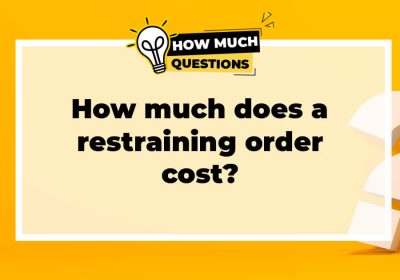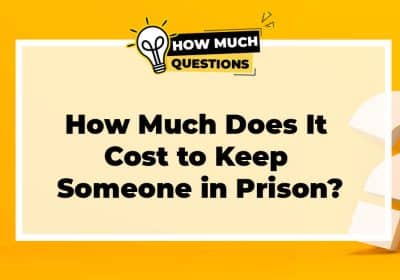
How to Lift a Bench Warrant: Cost, Process, and Legal Considerations
If you find yourself facing a bench warrant, it's crucial to understand the implications and take the necessary steps to resolve the situation. In this article, we will explore what bench warrants are, the process of lifting them, the associated costs, and important legal considerations. Please note that the information provided here is for educational purposes only and should not be considered legal advice. It is always recommended to consult with a qualified attorney for personalized guidance in your specific situation.
Understanding Bench Warrants
What is a Bench Warrant?
A bench warrant is a legal document issued by a judge that authorizes the arrest of an individual who has failed to comply with a court order. Unlike arrest warrants, which are typically issued based on suspicion of a crime, bench warrants are issued for non-compliance with court orders or failure to appear in court. The purpose of a bench warrant is to ensure the individual's appearance before the court.
Differences Between Bench Warrants and Arrest Warrants
While both bench warrants and arrest warrants involve legal implications, there are key distinctions between the two. Arrest warrants are usually issued when law enforcement has reasonable grounds to believe that a person has committed a crime. In contrast, bench warrants are issued in response to a person's failure to comply with court orders or failure to appear in court. It's important to note that arrest warrants can result in immediate arrest, while bench warrants may not lead to immediate apprehension but can lead to arrest if the individual encounters law enforcement.
Reasons for Issuing Bench Warrants
Failure to Appear in Court
One common reason for the issuance of a bench warrant is the failure to appear in court. When an individual misses a scheduled court date without a valid reason, the court may issue a bench warrant. This is to ensure that the individual appears before the court and does not evade their legal obligations.
Failure to Comply with Court Orders
Another reason for the issuance of a bench warrant is the failure to comply with court orders. Court orders can include requirements such as attending counseling sessions, paying fines or restitution, completing community service, or adhering to probation terms. Non-compliance with these orders can lead to the issuance of a bench warrant.
Consequences of Having a Bench Warrant
Risk of Arrest and Incarceration
Having a bench warrant exposes individuals to the risk of arrest and potential incarceration. If law enforcement officers encounter an individual with an outstanding bench warrant, they have the authority to arrest them on the spot. This can result in being taken into custody and potentially spending time in jail until a resolution is reached.
Financial Implications and Fines
Bench warrants can also have financial implications. Individuals with bench warrants may be subject to monetary penalties, court fees, and outstanding payments associated with their legal obligations. Failing to address these financial obligations can lead to further consequences and an ongoing burden on personal finances.
Process to Lift a Bench Warrant
Resolving a bench warrant typically involves a legal process that aims to lift the warrant and resolve the underlying issues. Here are the key steps involved:
Contacting an Attorney
When facing a bench warrant, it is highly recommended to seek the assistance of a qualified attorney. An attorney experienced in criminal defense or relevant legal matters can provide invaluable guidance and representation throughout the process. They can help you understand your rights, navigate the legal system, and work towards a favorable resolution.
In some cases, surrendering to the authorities may be necessary to address the bench warrant. This involves voluntarily turning yourself in at a police station or sheriff's office. When surrendering, it's essential to follow the instructions provided and cooperate with law enforcement. The booking process will occur, which includes fingerprinting, photographing, and potentially spending some time in custody until the next steps are determined.
Posting Bail or Bond
After surrendering, the court may grant the option of posting bail or bond to secure release from custody. Bail is a monetary amount set by the court as a guarantee that the individual will appear for future court proceedings. A bail bondsman can assist in posting bail by providing a surety bond, typically for a fee. The cost of bail or bond can vary depending on the severity of the charges and the court's discretion.
Factors Affecting the Cost of Lifting a Bench Warrant
Resolving a bench warrant can involve various financial considerations. Here are some factors that can affect the cost:
Attorney Fees
When hiring an attorney to assist with resolving a bench warrant, it's important to consider the associated legal representation costs. Attorneys typically charge hourly rates or require retainer fees, which can vary depending on the complexity of the case and the attorney's experience. It's essential to discuss fees and payment arrangements with the attorney before engaging their services.
Court Fees and Fines
Addressing a bench warrant often involves paying court fees and fines. These can include payment obligations for outstanding balances, restitution, or other financial penalties imposed by the court. The specific amount owed will depend on the nature of the case and the court's orders. It is crucial to fulfill these financial obligations to lift the bench warrant fully.
Bail or Bond Amount
If the court grants the option of posting bail or bond, the associated costs must be considered. Bail costs can vary based on the severity of the charges and the court's determination. Bail bond fees, typically a percentage of the total bail amount, may also apply when using the services of a bail bondsman. Collateral or other financial guarantees may be required depending on the circumstances.
Legal Options and Resources
Hiring a Defense Attorney
Hiring a private defense attorney can be advantageous when dealing with bench warrants. A defense attorney with expertise in criminal law can provide valuable legal guidance, negotiate on your behalf, and work towards a resolution that minimizes the potential consequences. They can also protect your rights and ensure that your case receives proper attention and consideration.
Public Defender Services
For individuals who are unable to afford private legal representation, public defender services may be available. Public defenders are court-appointed attorneys who provide legal representation to those who meet specific eligibility criteria. These services are typically offered to individuals who cannot afford private representation and face criminal charges or legal issues that may result in incarceration.
Conclusion
Addressing a bench warrant is a crucial legal process that requires attention, diligence, and the assistance of qualified professionals. By understanding the implications of bench warrants, the process of lifting them, and the associated costs, individuals can take the necessary steps to resolve their legal issues effectively. However, it is essential to consult with an attorney to obtain personalized advice tailored to your specific circumstances.
Remember, the information provided in this article is for informational purposes only and should not be considered legal advice. Laws and regulations can vary, and each case is unique. It is always recommended to consult with a qualified attorney or legal professional to address your specific legal situation.
References:
Disclaimer: This article is for informational purposes only and does not constitute legal advice. Consult with a qualified attorney for professional advice tailored to your specific situation.
Frequently Asked Questions (FAQ)
How much does it cost to lift a bench warrant?
The cost to lift a bench warrant can vary depending on various factors such as the jurisdiction, the severity of the offense, and the complexity of the case. It typically involves expenses such as legal fees, court fines, and potential bail or bond amounts. To determine the exact cost, it is advisable to consult with an attorney who can evaluate your specific situation and provide an accurate estimate.
Can I lift a bench warrant without an attorney?
While it is possible to attempt to lift a bench warrant without an attorney, it is highly recommended to seek legal representation. An attorney can guide you through the legal process, help you understand your rights, and navigate the complexities of the legal system. They can advocate for you, present your case effectively, and work towards a resolution that minimizes the potential consequences.
What are the consequences of having a bench warrant?
Having a bench warrant can result in serious consequences. If you encounter law enforcement while the warrant is active, you may be subject to immediate arrest and potential incarceration. Additionally, bench warrants can negatively impact your record and appear on background checks, making it difficult to secure employment or housing. Resolving the warrant promptly is crucial to avoid further legal complications.
How can I lift a bench warrant?
To lift a bench warrant, you typically need to take specific legal steps. Consulting with an attorney is crucial, as they can guide you through the process. They may advise you to surrender to the authorities, help you navigate the court system, and assist in negotiating with the prosecutor or judge. The exact procedure may vary depending on the jurisdiction and the circumstances of your case.
Is there a way to avoid the cost of lifting a bench warrant?
The cost of lifting a bench warrant is typically unavoidable as it includes legal fees, court fines, and potentially bail or bond amounts. However, an experienced attorney may be able to help minimize the overall cost by negotiating with the court, seeking alternative resolutions, or exploring options for financial assistance. Consulting with an attorney is crucial to understand the potential avenues available in your specific case.
Can I pay the fines to lift a bench warrant?
In some cases, paying the fines associated with the bench warrant may be one of the steps involved in lifting the warrant. However, it is important to consult with an attorney to ensure that all legal requirements are met. Simply paying the fines may not be sufficient to fully resolve the warrant, as other legal obligations or court appearances may be necessary.
What happens if I ignore a bench warrant?
Ignoring a bench warrant can lead to serious consequences. Law enforcement can actively search for individuals with outstanding warrants, and if you are found, you may be subject to immediate arrest and potential incarceration. Ignoring a bench warrant can also negatively impact your legal record, making it difficult to resolve the warrant and resulting in further legal complications. It is crucial to take prompt action to address the warrant.
Can I lift a bench warrant by myself?
While it is technically possible to attempt to lift a bench warrant without legal representation, it is highly recommended to consult with an attorney. The legal process can be complex, and an attorney can provide valuable guidance, protect your rights, and work towards the most favorable outcome. They have the experience and knowledge to navigate the legal system effectively and advocate for your best interests.
How long does it take to lift a bench warrant?
The time it takes to lift a bench warrant can vary depending on several factors, including the jurisdiction, the complexity of the case, and the court's schedule. Resolving a bench warrant typically involves multiple steps, such as consulting with an attorney, surrendering to the authorities, attending court hearings, and potentially negotiating with the prosecutor. The duration can range from days to several months, depending on the circumstances of your case.
What are the alternatives to lifting a bench warrant?
The alternatives to lifting a bench warrant depend on the specific circumstances of your case. Consulting with an attorney is crucial to explore potential alternatives, such as negotiating with the court for alternative resolutions, seeking diversion programs, or addressing underlying issues that led to the warrant. An attorney can assess your situation and provide guidance on the most appropriate course of action to resolve the warrant.
If you want to know other articles similar to How to Lift a Bench Warrant: Cost, Process, and Legal Considerations you can visit the category Legal and Professional Services.
- Understanding Bench Warrants
- Reasons for Issuing Bench Warrants
- Consequences of Having a Bench Warrant
- Process to Lift a Bench Warrant
- Factors Affecting the Cost of Lifting a Bench Warrant
- Legal Options and Resources
- Conclusion
- Frequently Asked Questions (FAQ)
- How much does it cost to lift a bench warrant?
- Can I lift a bench warrant without an attorney?
- What are the consequences of having a bench warrant?
- How can I lift a bench warrant?
- Is there a way to avoid the cost of lifting a bench warrant?
- Can I pay the fines to lift a bench warrant?
- What happens if I ignore a bench warrant?
- Can I lift a bench warrant by myself?
- How long does it take to lift a bench warrant?
- What are the alternatives to lifting a bench warrant?
Leave a Reply







You might be interested in